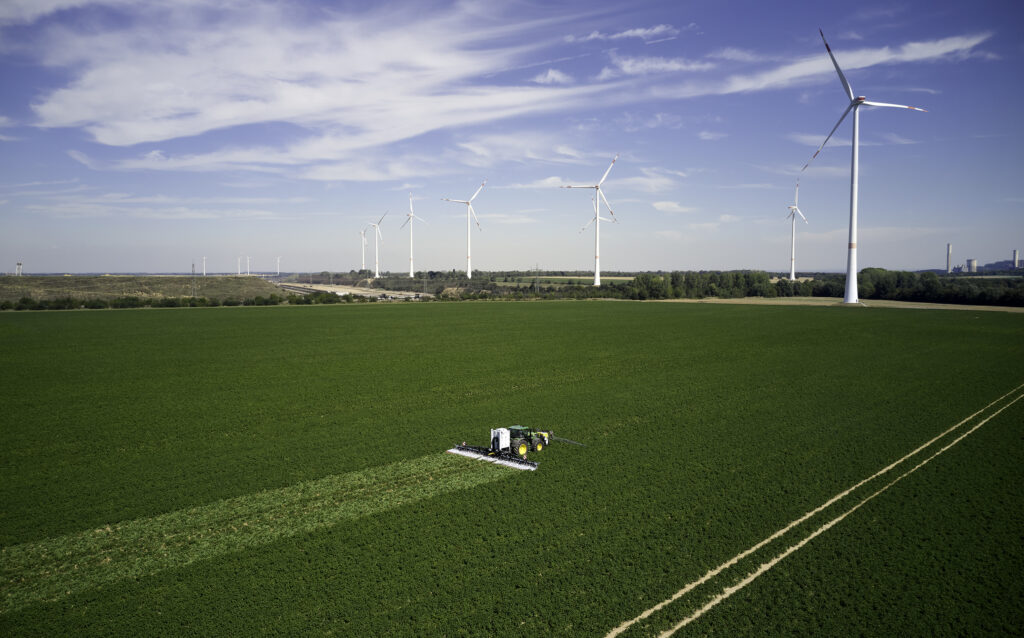Assessment of Eco inventories- energy consumption of pesticides
In the evolving field of environmental costing, particularly in the agricultural sector, accurately assessing the environmental impact of product use and production remains a challenge. crop.zone is at the forefront of developing application scenarios and quantifying the environmental benefits of its technology over traditional vegetation management practices, such as the use of glyphosate. Using extensive databases and external scientific expertise, initial analysis shows that crop.zone’s technology already requires less energy per hectare than glyphosate. Given glyphosate’s status as a mature technology with limited scope for efficiency improvements, crop.zone’s potential to reduce fossil energy consumption and carbon footprint through technological advances and increased reliance on renewable energy sources is significant.
Key Numbers
- Since its introduction in 1974, the annual quantity of Glyphosate used worldwide has increased by a factor of around 265*
- With annual sales of around 770 thousand tons in the agricultural sector, every tenth hectare of arable land can be treated with an average glyphosate application rate.*
- Europe’s share of global consumption of Glyphosate is 4 % or around 35 thousand tons per year.
- Glyphosate consumption Europe: 35,000 t/a
- Savings potential 69 % with crop.zone: 144,000,000 litres of diesel equiv.
- CO2 reduction: 382,000 t/a [1]
Energy Consumption of Glyphosate vs. crop.zone
Other than chemical herbicides, the energy consumption of the volt.apply can be directly measured through the primary power at the PTO of the tractor.
The specific energy use of Glyphosate for preharvest weed control and oat desiccation is about 110 kWh/ha [2] ( at an application rate of 1.8 kg/ha). To put this into perspective ploughing is using about 335 kWh/ha [3]
For the same application, the crop.zone technology only uses 15 kWh/ha.
[1] Source Bayerische Landesanstalt für Landwirtschaft www.lfl.bayern.de
[2] *Ecoinvent: ecoinvent v3.9.1 Zurich Switzerland https://ecoinvent.org/the-ecoinvent-database/
[3] KTBL https://www.ktbl.de/

